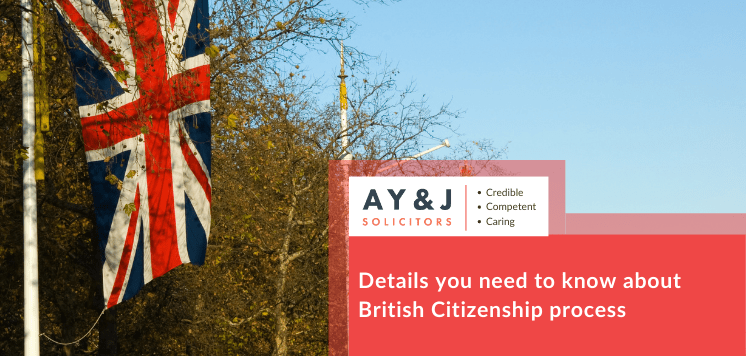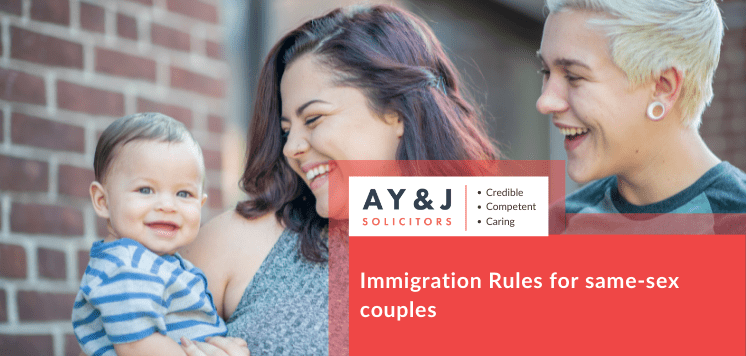Disclaimer: The information in this blog is accurate as of its publication date. Any updates after that date are not reflected here.
There are various ways a person may obtain British citizenship. The most common method of becoming a British citizen is via naturalisation.
Table of Contents
What is Naturalisation?
Naturalisation is the legal process by which a Non-British adult becomes a British citizen. The criteria and process obtaining British citizenship has changed over the years, however, for successful applicants the result has remained the same. The result is that a person is granted the same legal rights and status of a born British citizen.
An application has to be made to the Home Office and if the applicant fulfills the requirements set out in the British Nationality Act 1981, then the application will be approved, and the applicant can attend the British citizenship ceremony where a Certificate of Naturalisation will be given.
What are the eligibility criteria for naturalisation as a British Citizen?
- Be at least 18 years old
- Be of good character
- Have met the UK residence requirements
- Be of full mental capacity
- Be able to meet the English (or Welsh/ Scottish Gaelic) language requirement
- Be able to show you have sufficient knowledge of life in the UK, in the form of a Life in the UK test pass
- Intend to make the UK your permanent home
How to Apply for British Citizenship by Naturalisation?
Once you have met the eligibility criteria, you need to fill out the online application form and pay the fee. You will also need to provide documentation such as your passport, proof of address, and evidence of your knowledge of life and language. You may also be required to attend an interview or provide biometric information. After submitting your application, the UK Home Office will review your application and make a decision on the case. Once your application gets approved, you will be invited to attend a ceremony to take an oath of allegiance and obtain your certificate of naturalisation.
What are the residence requirements?
Most applicants will need to show that they have resided in the UK lawfully for at least 5 years before they can apply for naturalisation as a British citizen. Depending on the applicant’s circumstances at the time of applying for naturalisation, the residence requirement may be shortened from 5 years to 3 years UK lawful residence. This applies to those applicants married to a British citizen.
If married to a British citizen
Section 6(2) of the British Nationality Act 1981 states that a person married to a British citizen can apply to naturalise as a British citizen after three years of living in the UK. The Act also requires the applicant to have Settlement in the UK, such as indefinite leave to remain status, before applying for British citizenship. Further to the 2012 changes to the immigration rules, spouses can only apply for indefinite leave to remain after 5 years of UK lawful residence. Therefore, in practice, the period of UK residence is normally five years even for spouses of British citizens.
The maximum absences allowed under section 6(2) is 270 days in total during the last 3 years leading up to the date of submission of the naturalisation application, and no more than 90 days in the last final qualifying year.
If not married to a British citizen
Section 6(1) of the British Nationality Act 1981 states that a person not married to a British citizen will require settlement in the UK, and this must have been held for a period of at least 12 months before applying for naturalisation. An applicant who falls under this section will therefore need to accumulate at least 6 years in the UK (overall) to apply for British citizenship.
The maximum permitted absences allowed under section 6(1) is 450 days during the five years leading up to the naturalisation application, and no more than 90 days in the last final qualifying year.
Which application form to use for naturalisation?
Before applying for British citizenship, it is imperative to know the correct form. The application is normally made using an online form “AN” and is submitted and paid for online.
What is the British Naturalisation UK fee, and how long does it take for approval?
The application British Naturalisation UK fee is £1330.
The process takes approximately six months. Once your application is granted, the Home Office will send an approval message by email, which also contains information on the next steps. You will be required to attend a citizenship ceremony, receive your certificate of citizenship, and then you can apply for a British passport.
How can I check my naturalisation status?
After applying for British citizenship through Naturalisation and paying the required fee, you receive a unique identification number. The Home office will contact you if they find any missing data or information in your application. You will normally have to wait at least 6 months before contacting the Home Office for an update.
If urgent, you can contact UKVI by telephone (contact details on the gov.uk website) or seek an immigration lawyer’s assistance (if you provide them with a letter of authority) to make contact through the correct channels on your behalf.
Can I apply for a British passport at the same time as Naturalisation?
It is no longer possible to apply for your British Passport at the time of Naturalisation.
Once you have been granted British Citizenship and have your Naturalisation certificate in hand, you can apply for your first adult passport.
The fees depend on whether you are applying online (£82.50) or on a paper form (£93).
What if my application is refused?
Your application for British citizenship can be refused. Depending on the reasons for refusal, you may wish to re submit a new application, or challenge the decision by Reconsideration or Judicial Review. There is no Right of Appeal against a Naturalisation refusal.
Conclusion: The process of naturalisation can be daunting. One must carefully apply and submit all the required documentation at the correct time. It is also recommended that you apply through an immigration lawyer who has Immigration Law expertise. A Y & J Solicitors have experience of over 14 years, with experts who will represent you case and strive tirelessly for a successful outcome.









